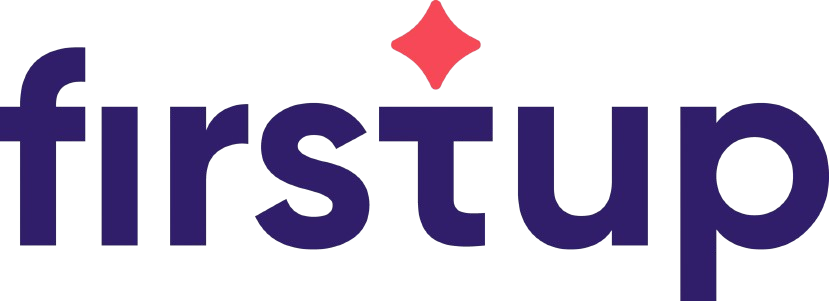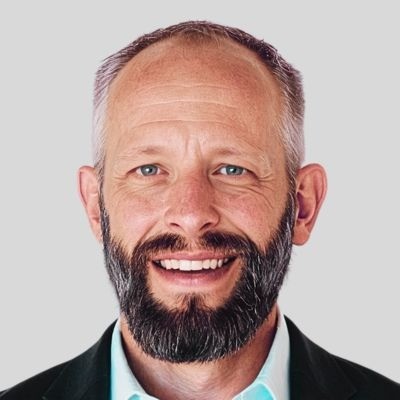Revenue Architecture
Learn how to architect a full, modern revenue system, across six scientific models—from monetization and data models to growth and GTM alignment.
About the Course
Revenue Architecture equips revenue leaders with a scientific framework for recurring revenue and the practical tools needed to architect a scalable go-to-market engine. Learners understand six interconnected models—from the Revenue Model and Data Model to the GTM Model—and gain the language, logic, and frameworks required to align sales, marketing, customer success, and RevOps under a unified operating system.
Rather than relying on disconnected tactics or intuition, this course enables leaders to design a cohesive revenue system that supports sustainable growth, predictable outcomes, and cross-functional alignment.
Curriculum & Learning Experience
Learners engage with a certified Winning by Design trainer in an experiential learning format that includes 12 hours of live instruction. Sessions incorporate recurring revenue frameworks applied to real-world scenarios.
Participants also receive access to our learning management platform for continued reinforcement through on-demand videos and frameworks.
Who This Course Is Best For
- CROs, VPs/Directors of Sales, Marketing, Customer Success, and Revenue Operations
- Senior individual contributors preparing for revenue leadership
- Leaders responsible for aligning GTM functions and scaling recurring revenue performance
Blended Course Format
-
12 hours of live instruction, delivered as six 2-hour sessions over two weeks
-
Live sessions conducted via Zoom video conference
-
Exclusive asynchronous access to blueprints, videos, and exercises
-
Industry-recognized certification upon completion
Prerequisites
- Holding a leadership role (such as CEO, CRO, CFO, VP of Sales, Director of Revenue Operations, etc.) is recommended, but not required.
Course Details
Location
Online, delivered via Zoom
Standard Duration
2 weeks
Standard Schedule
6 live sessions over 2 weeks (2 hours each) + online learning content
Upcoming Courses — Scheduled for Global Time Zones
Course Flow & Curriculum
Week 1: Revenue Model, Data Model, Mathematical Model
Module 1: The Revenue Model
Learning Objective: Discover the three distinct monetization strategies: ownership, subscription, and consumption. Learn how each strategy operates based on different revenue principles, from upfront payments and periodic subscriptions to usage-based consumption.
↑ Preview the Content
Module 2: The Data Model
Learning Objective: Explore the data model that spans the entire customer lifecycle. Transform the classic marketing and sales funnel into a holistic framework that emphasizes customer impact from acquisition through long-term engagement.
Module 3: The Mathematical Model
Learning Objective: Gain insights into the engineering blueprint of the revenue system. Identify how revenue behaves under various conditions and uncover the sophisticated nature of a recurring revenue engine through mathematical principles.
↑ Preview the Content
Week 2: Operating Model, Growth Model, GTM Model
Module 4: The Operating Model
Learning Objective: Learn about the blueprint for scaling your business. This session emphasizes the necessity of standardized data models, a unified language, and a uniform methodology across the entire customer journey to ensure cohesive operations.
Module 5: The Growth Model
Learning Objective: Navigate the key stages of growth in a recurring revenue business. This session will guide you along an S-curve, helping you identify critical revenue breakpoints and providing a roadmap for managing growth complexities and preparing for future phase shifts.
Module 6: The GTM Model
Learning Objective: Identify how to combine the efforts of all customer-interacting functions, including marketing, sales, and customer success. Explore various go-to-market motions to optimize your customer engagement strategies.
↑ Preview the Content
The Six Core Models That Power Predictable Revenue
Explore the six interconnected revenue models that form the foundation of sustainable, recurring growth. Each model gives leaders a structured way to diagnose performance, align teams, and design scalable go-to-market systems with confidence.
Your Learning Journey
A clear view of how the course is delivered—from live sessions to applied practice—so learners know what to expect.
Course dates are flexible. This is for illustrative purposes only.
Get excited for the course — no action items yet.
Get situated on the online learning platform, complete Session 1 pre-work.
Live Session – 2 hours
Covering Module 1.
Complete any post-session work, complete pre-work for next session.
Live Session – 2 hours
Covering Module 2.
Complete any post-session work, complete pre-work for next session.
Live Session – 2 hours
Covering Module 3.
Live Session – 2 hours
Covering Module 4.
Complete any post-session work, complete pre-work for next session.
Live Session – 2 hours
Covering Module 5.
Complete any post-session work, complete pre-work for next session.
Live Session – 2 hours
Covering Module 6.
Complete online certification exam to prove your knowledge and earn a certificate (with score of 75% or higher)!
Short on Time?
We’ve designed an Essentials in Revenue Architecture course to be
completed in just 2–3 hours.
Industry-Leading Certification in 3 Steps
Enroll
Choose the certification program that aligns with your role and goals, and secure your place in a structured learning experience built around proven GTM frameworks.
Attend
Participate in live, interactive sessions where concepts are taught, discussed, and applied through real scenarios—not lectures or slide-only walkthroughs.
Certify
Complete the certification assessment to validate your ability to apply the framework correctly, consistently, and in real GTM situations.
Trained in this course to date
Proven. Trusted. Recognized.
Our work is consistently recognized by industry analysts, platforms, and practitioners
for setting the standard in modern go-to-market training.
Trusted by Revenue Teams Worldwide






Why Winning by Design Stands Apart

Open & Private Course Formats
Choose the training format that best fits your team—join open courses to build skills alongside peers, or run private sessions tailored to your specific GTM motion and priorities.
Open Courses
Learn alongside GTM practitioners from other SaaS teams in live, instructor-led sessions focused on practical skill development and shared learning.
Best for teams and individuals who want:
-
Live, structured training without custom setup
-
Exposure to how peers approach similar GTM challenges
-
Fast access to proven frameworks and skills
Private Courses
Run focused training for your team, customized to your GTM context, customer profile, and execution challenges.
Best for teams of 8+ who need:
-
Alignment across sales, success, marketing, or leadership
-
Training tied directly to your real deals and customers
-
Faster adoption through shared language and standards
Need group or international training?
We offer team trainings for 8+ people and deliver training across North America, Europe, AsiaPac, and Latin America — in English, German, French, Spanish, Portuguese, Chinese, and Japanese.

Frequently Asked Questions
What will I learn in this course?
In this course, learners gain a deep understanding of the six foundational models that power recurring revenue systems. You’ll learn how to design, align, and optimize revenue strategy, data, operations, growth, and GTM motion across your organization.
What is the format and duration of the course?
The course is delivered live online over a series of six, 2-hour sessions, typically with live instruction over two weeks complemented by asynchronous access to additional learning resources such as videos, blueprints, and exercises.
If I am unable to attend a live session, will recordings be provided?
Yes. While we recommend attending live, if possible, for the best learner experience, recordings will be provided by the course trainer following each live session.
Are there any prerequisites for this course?
Holding a leadership role (such as CEO, CRO, CFO, VP of Sales, Director of Revenue Operations, etc.) is recommended, but not required.
How is the course delivered?
The course is delivered via live Zoom video sessions led by certified instructors, supported by asynchronous learning content available through an online learning platform.
Will I receive a certification?
Yes — learners who complete the course and any required assessments will receive an industry-recognized certification.
Can I take this course with my team?
Yes — this course can be taken as part of an open cohort or arranged privately for your team on a customized schedule by contacting us.
Is this course suitable for global participants?
Yes — Revenue Academy courses are scheduled across various time zones to accommodate global learners, and live sessions are conducted online. That said, if courses are not available regularly in your region, contact us to see if a training cohort can be arranged.
Is this course accessible via Pavilion membership?
Winning by Design no longer offers the Revenue Architecture course through Pavilion. This allows Winning by Design to better serve learners through a single, unified platform that connects learning, research, and community.
Can I apply what I learn immediately?
Yes. The course is built around real-world frameworks and examples. Leaders are encouraged to apply these models and tools directly to their own GTM strategy, revenue data, and planning while attending the course.
What is the difference between the Revenue Architecture and Growth Architecture courses?
Revenue Architecture teaches you how to build a scientific, repeatable revenue system — covering foundational models (Revenue, Data, Mathematical, Operating, Growth, and GTM) that unify Marketing, Sales, Customer Success, and RevOps into a predictable revenue engine. It’s ideal for revenue leaders and GTM managers seeking to establish a strong revenue foundation.
Growth Architecture builds on that foundation and is executive-level training focused on designing scalable, resilient growth systems that compound over time using strategy, systems thinking, diagnostics, and growth machine design. It’s best for senior leaders ready to move beyond tactics to engineer long-term capital-efficient growth.
How do I register for the course?
You can register for open cohorts through the Revenue Academy schedule, or contact us to explore private team sessions.
Ready to Architect Your Revenue for Predictable Growth?
Standardize revenue logic, optimize cross-functional motion, and build a cohesive growth engine from acquisition to expansion.
Deepen Your Understanding with the Revenue Architecture Book
Authored by Winning by Design founder Jacco van der Kooij, Revenue Architecture dives deeper into the frameworks and systems behind recurring revenue, expanding on the core models covered in this course with visual blueprints and practical insights every revenue leader should know.
Talk with a GTM expert about your GTM growth
We’ll help you understand what’s blocking predictable revenue and recommend the best path forward for your team.
-
Get clarity on the root causes slowing your growth
-
Understand which GTM improvements will deliver the biggest impact
-
Explore pricing, timelines, and the right engagement for your goals













